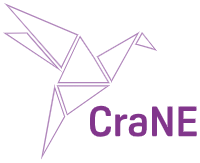Objectives: - To endorse the sustainability of the outputs of the CraNE Joint Action towards future implementation into cancer care structures in the Member States.
Other objectives:
-Establish a workable interaction with the MS policy makers
-Develop a tool to monitor the transgression towards the novel cancer care organization including pilot/use case experiences
-Develop a Blueprint for establishing the novel cancer care organization into local cancer care
-Establish a workable interaction with the MS policy makers to evaluate the readiness of HCS to integrate the scenarios developed in CraNe
-Develop a tool to monitor the transgression towards the novel cancer care organization including feasibility approach and pilot / use case experiences
Description: The WP4 endorses the sustainability of the outputs of this JA towards a future implementation into the cancer care in the Member States. It is thus uttermost important to establish a solid relation with the representatives at the MSs level. As raised by various members in the Governmental Board of the Joint Action iPAAC, collecting and integrating all outputs from the numerous initiatives in the EBCP is a major challenge for the Healthcare policy makers. (Task 4.1: Organisation of the Governmental Board of the Joint Action). As a second task, this WP will develop a framework to support MS in developing and establishing either two of the proposed cancer care structures within their Healthcare systems: a CCC centres based system of a CCC network-based system or any intermediate/alternative organization. It is clear that the current organization and contextual factors are major drivers in such development. WP4 will integrate the conclusions of W5-8 in this framework. For this, WP4 will develop a so-called ‘Maturity-level’ model that enables MSs to assess how their current cancer care organization figures in respect to the CCC/N universe. To reach this objective, WP4 will closely work together with WPs 5 & 6 to ensure to collect the perspective of health authorities and end-users on (1) what are their needs/expectations and on (2) the recommendations made. Here for, surveys, Delphi analyses and SWOT exercises could be explored. (Task4.2: Maturity model as a tool for monitoring the transition from “As is” to “To be”). To test and sharpen the thinking on development of CCC/N organization of cancer care, use cases in some MS/regions could be an interesting asses to better identify the clarity and appropriateness of developed criteria by the WPs. As context and level of organization in the MS are key determinants in the introduction of this novel cancer care organization in the HCS, it would be good to identify a number of candidates to participate in the model development based on their different local organization. (T4.3: Testing the Maturity model in volunteered countries as a use case). Finally, the WP4 will ensure to develop a coherent output integrating the outputs of the different WPs working on specific aspects of the CCC/N universe into a Blueprint for Member states including a layman section allowing all to understand this novel initiative in organizations of cancer care locally. Task (T4.4: Develop a Blueprint for CCC and CCCN introduction into national cancer plans or strategies).
